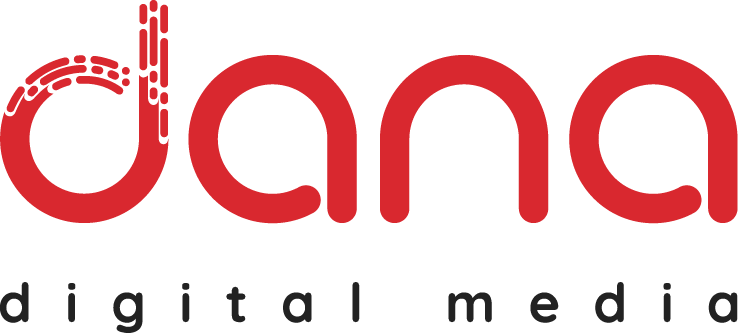About Us
- Dekwaneh - Roundabout - Alma Center - 6 & 7th Floor
- +961 1 692026
- info@danadm.com
- Week Days: M-F 8:00 Till 17:30
Social Media Engagement, Caption creation, Content optimization
- Home
- Influencer Marketing and AI

Introduction to Influencer Marketing and AI
As more brands embrace influencer marketing, artificial intelligence (AI) can improve performance, reduce risk, and boost productivity. They are a perfect match.
The Growth of Influencer Marketing
Influencer marketing is big business. In 2023, it was estimated at $21.1 billion worldwide. It’s set to grow in 2024. Traditional advertising struggles to reach today’s tech-savvy, ad-resistant consumers. Influencers provide a way to connect with potential customers.
The Need for Streamlined Marketing Models
Brands see higher trust and engagement from smaller (micro) influencer partnerships. Consequently, the need to streamline the multi-influencer marketing model increases. Thankfully, AI is transforming the influencer marketing landscape. It provides tools and solutions that help brands make data-driven decisions, automate sourcing, and manage influencer relationships.
Benefits of AI in Influencer Marketing
This synergy between influencer marketing and AI improves:
- Target Audience Segmentation
Understanding your target audience is crucial before selecting influencers. Therefore, most social media management and social listening tools have AI built in to streamline this process. AI tools such as Audiense, Vista Social, and Hootsuite can identify and segment your target audience. They analyze data from demographics, interests, social media behavior, browsing history, and purchase patterns.
- Influencer Discovery
Finding and selecting influencers can be time-consuming. You want a great fit with your brand and values. Also, the influencer’s followers should match your target audience. Their inclusion should result in a wider reach and impact.
An AI-powered tool such as Hype Auditor makes influencer discovery easy. It identifies the most suitable influencers for your brand, considering the following factors:
- Demographics: Ensuring your influencers’ followers match your target audience.
- Brand mentions: Looking for influencers who already talk about your brand ensures they are interested in you.
- Interests: Searching for relevant keywords and hashtags finds influencers in a specific niche.
- Growth rate: A steadily increasing number of followers signals potential for a long-term partnership.
- Similar influencers: When you know which influencers work well, the algorithm finds others with similar audiences, interests, and locations.
- Authenticity and quality: The tool checks that influencers are followed by real people and have high-quality engagements.
- Content Creation and Optimization
AI tools help influencers save time and improve content quality. Some good options to start with include:
- Content generation: ChatGPT produces text, images, videos, or audio based on a given prompt.
- Caption creation: ScripAI helps influencers write innovative captions that generate more engagement.
- Storytelling: Yarnit uses AI to generate text, images, and audio based on inputs.
- Hook generation: Tribe Scaler creates intriguing comments that encourage engagement.
- Content optimization: AI uses predictive models, such as BERT, to analyze content and provide improvement suggestions.
- Performance Analytics
AI-driven analytics tools, used by social listening tools like Brandwatch and influencer marketing platforms like HypeAuditor, analyze real-time data on campaign performance. Brands can track engagement, click-through rates, conversion rates, and other key performance indicators. This data is crucial for making informed decisions and optimizing future campaigns.
- Influencer Fraud Detection
Influencer marketing faces fraudulent activities such as fake followers and engagement. AI algorithms built into most influencer marketing platforms detect these fraudulent accounts and behaviors, helping brands partner with authentic influencers. Tools like FakeSpot focus on specific fraudulent activities, spotting fake reviews and scams and providing trustworthiness ratings.
- Virtual Influencers
AI creates virtual influencers, addressing brands’ concerns about losing control when using influencers. This has led many brands to test virtual (AI-generated) influencers. Gartner predicts that by 2026, CMOs will dedicate 30% of their influencer budgets to virtual influencers. Successful examples include KFC’s virtual Colonel Sanders, Liv, Renault’s virtual ambassador, and Lil Miquela, who collaborates with brands like Dior, Prada, and Calvin Klein.
Ethical Considerations and Challenges
Artificial intelligence is a powerful partner in influencer marketing. However, there are challenges and ethical considerations that can’t be ignored. Issues related to privacy, transparency, and clear guidelines are vital. Brands must be mindful of potential bias in AI algorithms and ensure ethical and transparent influencer selection.
Conclusion
While technology evolves, brands must adapt to stay ahead. By harnessing the power of influencer marketing and AI, businesses can drive online success and build strong, lasting relationships with customers. For more information on optimizing influencer use in your marketing, check out our ‘Ultimate Guide to Influencer Marketing’. You can also see great examples of brands using AI to optimize their marketing campaigns.
#Returnoninvestmentindigitalmarketing #GoogleHighRankingGoogleAdvertisinginLebanon #BethefirstpageonGoogleandonesearchengines #Analyticsandreportingtools #Responsivewebdevelopment

